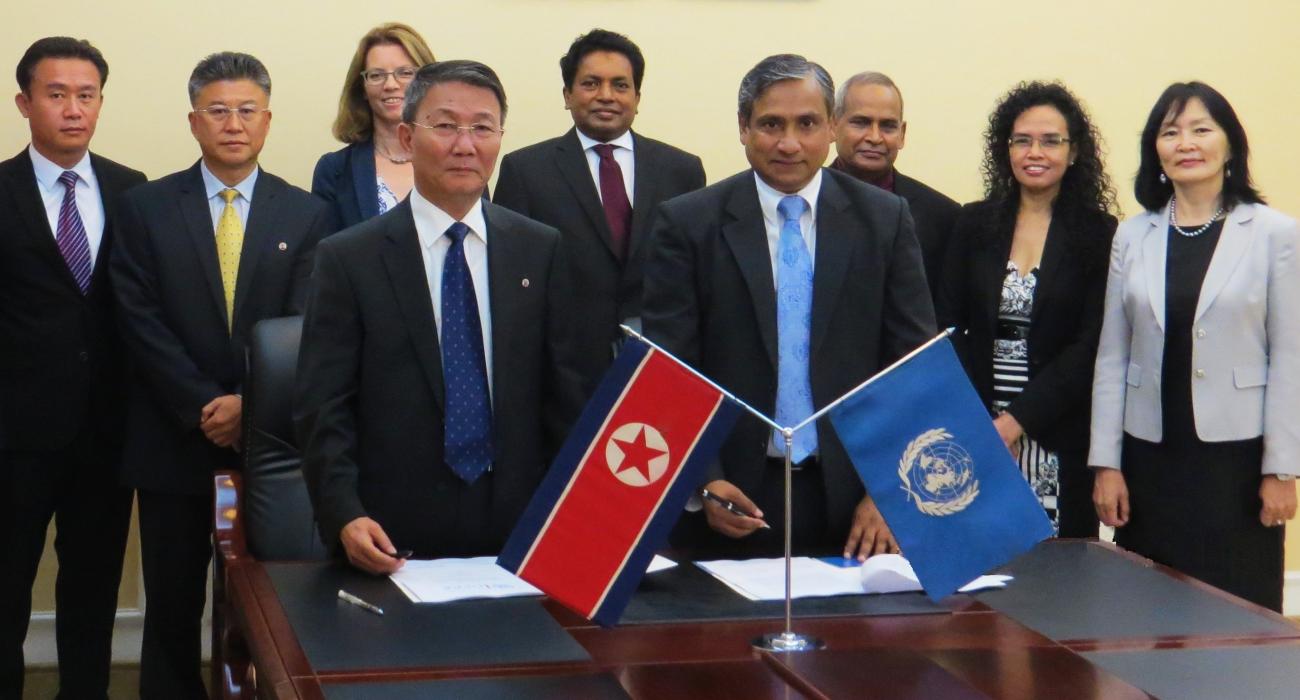Story
The United Nations’ Strategic Framework for cooperation between the UN Country Team and the Government of DPR Korea – update: extension until 2025
01 September 2023

Caption: Signature ceremony of The United Nations Strategic Framework for DPRK on 1 September 2016.
(left) Mr Kim Chang Min, Secretary-General, National Coordinating Committee, Ministry of Foreign Affairs of DPRK; (right) Mr Tapan Mishra, UN Resident Coordinator for DPRK
Photo: © UN DPRK
UN entities involved in this initiative
FAO
Food and Agriculture Organization of the United Nations
IFAD
International Fund for Agricultural Development
OCHA
United Nations Office for the Coordination of Humanitarian Affairs
UN ESCAP
United Nations Economic and Social Commission for Asia and the Pacific
UNDP
United Nations Development Programme
UNEP
United Nations Environment Programme
UNFPA
United Nations Population Fund
UNICEF
United Nations Children’s Fund
UNIDO
United Nations Industrial Development Organization
UNOPS
United Nations Office for Project Services
WFP
World Food Programme
WHO
World Health Organization

















